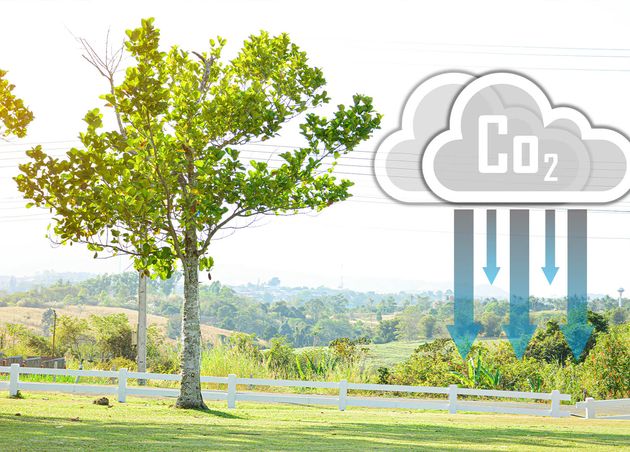Working from Home: Understanding Your Footprint & Its Environmental Impact
There has been a growing demand for adaptability in where and how employees work. Nonetheless, bosses and employees intermittently saw remote work from home until the COVID-19 pandemic. Work from home became increasingly popular because of the pandemic and lockdown that followed in March 2020.
Working from home is no longer an occasional work style. This work pattern is fundamental for employee retention and business continuity. According to statistics, after the pandemic, 88% of businesses around the globe supported or made it obligatory for their workers to work remotely.
It's undeniably true that remote working has numerous benefits for employees. Adaptable working choices balance serious and fun activities by positively influencing remote employees' lives. However, positive environmental impact is one of the main advantages of remote work.
🌍 Eco Fact
According to a new study, individuals who work from home constantly produce less than 50% of the greenhouse gas emissions of in-person workers.
Environmental Advantages of Remote Work
The advantages of working remotely include improved efficiency insofar as employee arrangement and discipline can be accomplished. Luckily, numerous remote work applications make a virtual office for this accomplishment while working as a distant employee monitoring application.
Accordingly, remote working is cost-effective for employers as well as eliminates the drudgery of employees, such as:
- Traffic in rush hours
- Commuting time
- Living in specific urban areas
- Working as per explicit hours and places
Employees who successfully achieve the work-life can act unreservedly to accomplish more fruitful results. Furthermore, there is another thing that this entire framework gives: a positive effect on the climate!
Now, let's explore more about the other environmental advantages of remote working from home below:
#1 Energy Footprint
The effect of remote work on energy use is blended. For some, it has a beneficial outcome, while others demonstrated an unbiased or adverse consequence on energy use. At last, such effects can differ significantly by individual qualities of employees (e.g., mindfulness, wealth, mentalities, family size), home infrastructure (e.g., supplier, building energy rating), and even situational considerations (e.g., season and geographic area).
When remote work policies are crafted by companies, for example, by sponsoring a part of home energy bills, they likewise need to consider the impact residential energy emissions have on sustainability.
In all honesty, the energy utilization in workplaces is almost two times as high. Working environments generally utilize more energy since they have numerous assorted prerequisites. An office must have:
- Numerous PC and information servers should be available
- An ideal warming and cooling system
- Excessively used printing stations, etc.
These necessities are two times as low when employees work remotely. When we look past these sorts of necessities, we see that consumption is affected by the behavior of office workers.
For example, workers might not want to switch off the lights regularly as they are at home. Then again, investigations show that each worker who works from home lowers energy utilization by no less than 5,400 kWh yearly!
#2 Transportation Footprint
Decreased driving when working from home will undoubtedly yield advantages to the environment, though there is emerging proof of more short trips and non-work travel. For instance, in a Californian example of employees who switched to working from home during the Coronavirus pandemic, the decrease in vehicle miles covered was followed by a 26% increment in the average number of trips covered.
Aside from changes to the work commute, likely changes in ecological footprint emerging from business-related commutes in metropolitan cities (e.g., conferences and gatherings) will likewise be considered.
#3 Lesser Emission of Greenhouse Gases
Saving time, energy, and cash spent to commute to the office is one of the main benefits of working from home. Remote workers decrease their carbon footprint by just working from home! You can have a positive effect if you work in a hybrid environment, even by patronizing public transportation instead of a private vehicle.
Consider the impact it would have if we somehow happened to decrease the number of vehicles on the streets. The Global Workplace Analytics report expresses that emissions from remote workers are decreased by taking 600,000 vehicles off the street for a year. A similar report demonstrates that remote working for a portion of the week can lessen emissions by 54 million tons annually.
#4 Waste Footprint
Recycling increased in the UK during the first lockdown, similar to past studies showing that employees practiced more sustainable waste disposal at home than at the workplace. Consequently, working from home might have a net positive ecological effect on waste management, remembering that services such as providing waste canisters for arranging and recycling are significant factors.
In any case, there is a risk of more electrical and electronic waste (e-waste), of which only 20% is recycled.
#5 Less Use of Office Supplies
Employees utilize a tremendous amount of office assets during one normal working day. Consider all the priority office supplies, from furniture to cleaning supplies, from paper to espresso. Remote working initially digitalizes the sending and receiving reports between colleagues or clients, implying a mass decrease in paper use with paperless office applications.
Ponder about how much time, paper, and space is saved because of advanced documentation. No need for label print duplicate, name, and filing cabinets in offices! Likewise, plastic use has diminished since employees do not want to utilize plastic cups when working from home.
#6 Increased Air Quality
Air contamination levels all over the planet diminished when huge industrial workers began to take their work back home briefly. There is a decrease in paper use because of digitalization. This paperless office technique saves trees. Indeed, one remote worker can eliminate up to around 14.7 pounds of carbon dioxide from the air!
We can improve air quality by cutting down on greenhouse gas emissions. Even though this has been a temporary impact, the reduction in the volume of air contamination has never been this drastic. Numerous people saw this change. Eventually, it is a day-to-day existence reality, not simply found in statistics we don't comprehend.
#7 Technology Footprint
Our modern ways of behaving add up from an individual footprint point of view. A study suggests that during the pre-coronavirus period, a business person produces 135 kg of CO2 from sending emails yearly, which might be compared to traveling 200 miles in a family vehicle.
However, the technological needs of a typical business person have now changed. Lesser in-person office communication can mean additional time spent interacting on the web.
🌍 Eco Trivia
Work-from-home employees in the US were anticipated to decrease their emissions by 54%, in contrast with office workers.
How Can Companies Make Work From Home More Environmentally Sustainable?
Remote work presents new difficulties for how best to notice and impact ways of behaving that matter for the ecological system. Workers' homes are their confidential circle, and employers must proceed cautiously to avoid overextending.
Simultaneously, numerous employees will probably appreciate some assistance from their employers to guarantee that their work-from-home set-up is feasible and comfortable. Creating beneficial sustainability policies (e.g., financial and ecological advantages) guarantees that companies can simultaneously advance their employees' productivity and well-being toward their sustainability objectives.
Captains of industry concerned about lessening their workers' ecological effects can begin by planning work-from-home strategies and policies with the following consideration of three contemplations:
#1 Instill Sustainability Culture
To establish a climate-friendly and environmentally sustainable culture, companies must ensure that every corporate decision across all departments routinely embeds sustainability considerations. This implies considering the currently accepted practices and discernments for tending to remote (and in-house) employees' innovation, travel, energy emissions, and waste.
Ways of diminishing these emissions need to be designed by addressing how individuals cooperate with every one of these practices. Pioneers can also assist with molding a sustainability culture by sticking to existing ecological policies.
#2 Provide Supportive Policies
Reviewing existing policies is a significant initial step, however, it is in many cases insufficient. Company heads should offer employees the needed support in every outlined area to implant an ecologically sustainable culture. This could mean extra policies like empowering and supporting employees to change to renewable energy sources at home by granting access to auto-switching energy services.
Corporate leaders could likewise give motivations to travel for work meetings such as bicycle plans. They can additionally offer reusing and safe disposal of old or duplicate electronic gadgets and e-waste via in-house drop-off points or outsourcing to recycling firms. This is certainly not a thorough rundown; managers should look for employee input about extra policies and designs.
#3 Think Global, Act Local
A few policies, such as ways to lower emissions around the home and naturally changing to the least expensive environmentally friendly power energy tariffs, might be helpful to all workers. Notwithstanding, ecological footprints will change significantly across people, groups, organizations, and businesses.
For instance, one organization's labor force could depend vigorously on technology, so decreasing emissions from energy and e-waste is particularly significant. Another organization's labor force could drive long distances or embrace regular work travel. For this organization, the need should be reducing travel emissions by decreasing options like utilizing low-carbon transport, non-essential trips, flying economy for important trips, and carbon offsetting.
The widespread adoption of remote work has revolutionized our work and offers a promising pathway toward a more sustainable future. Remote work has now emerged as a powerful tool and initiative in the fight against climate change by reducing energy consumption, curbing transportation emissions, and promoting eco-friendly practices. However, to maximize its environmental benefits, companies must proactively implement supportive policies and foster a culture prioritizing sustainability at every level.
As we embrace the era of remote work, we must seize this opportunity to build a more environmentally conscious workforce. By instilling a sustainability culture, providing supportive policies, and considering the diverse environmental footprints of employees, businesses can play a pivotal role in further driving positive change. Remote work isn't just about flexibility and convenience; it's also about reshaping our relationship with the environment for a brighter, greener future.
Eco Bear


























